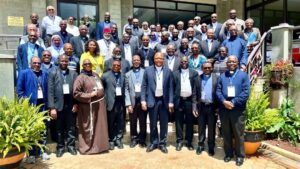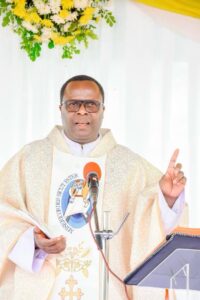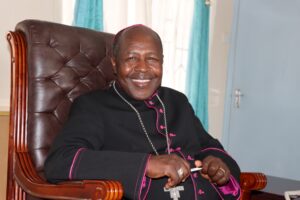TANZANIA: Catholic Priests in Tanzania have been impacted with the ‘citizenship knowledge’
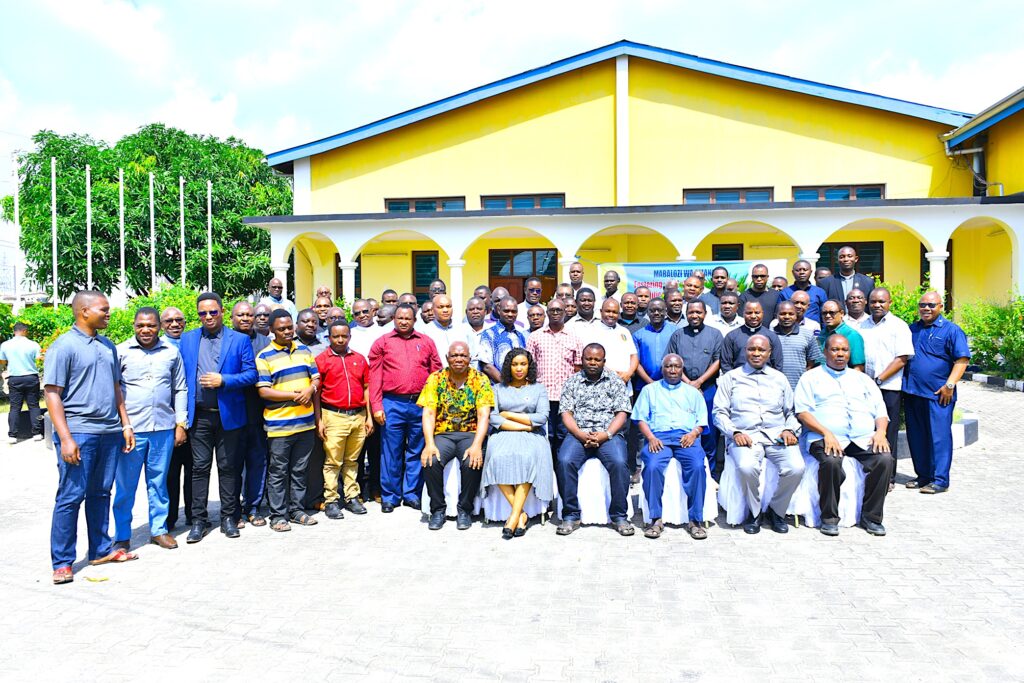
Sarah Pelaji
Priests of the Catholic Church in Tanzania have been impacted with the citizenship education guided by the Catholic Social Teachings for the Community participating in various social development processes.
The two days training was held at Tanzania Episcopal Conference TEC, Kurasini Dar es Salaam guided by the Key Word “Motivating and Strengthening Participation in Politics and Civil Rights.”
The aim of the Training, is to prepare Priests to become Master Trainers at their own diocese on Citizenship Education guided by the Teachings of the Catholic Church.
The two-day training is the implementation of the Second Phase of the Peace Ambassadors Project coordinated by the Peace and Justice Commission of the Tanzania Episcopal Conference (TEC), involving approximately 70 priests from Catholic Dioceses in the country. Each Diocese was presented by two priests.
Opening the training, the Secretary General of TEC Father Charles Kitima, said that the various challenges that are currently emerging in the community are due to the lack of citizenship education and this makes the Tanzanian citizens fail to decide important issues of their well-being.
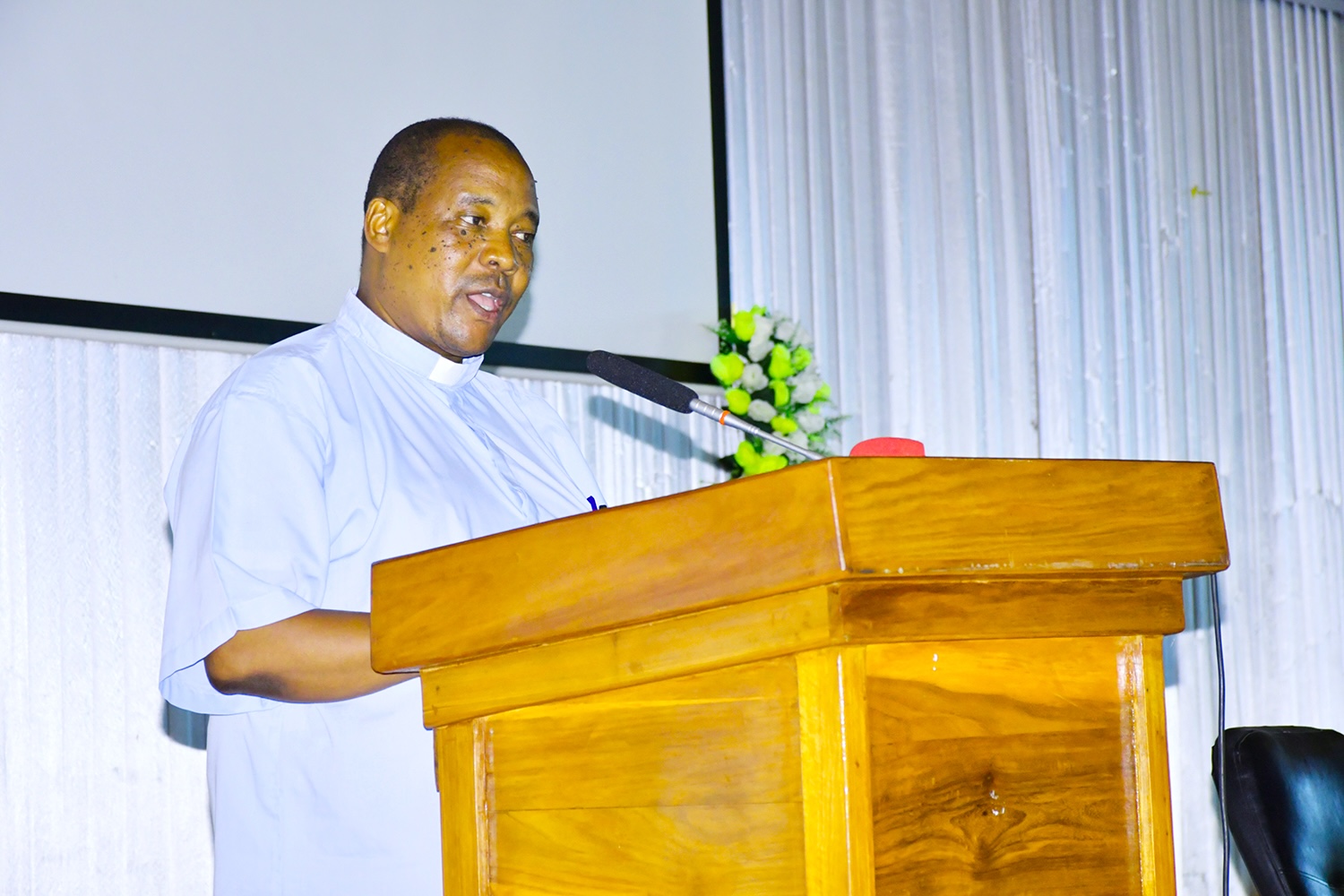
“So, it is the responsibility of the Church through His priests to teach their believers so that they can use their consciences to make decisions physically and spiritually without being deceived or lied to in any way.
Priests as Ambassadors of Jesus, should rebuke and criticize all kinds of sins at all social levels while realizing that they are guardians of people’s consciences, so in their mission, they should ensure that a person’s dignity is given priority,” he insisted.
He also said that in nurturing the consciences of their believers, it is not a sin for priests to teach citizenship education, including the importance of participating in various election processes, whether by voting or being elected, but he insisted that in doing so they should be guided by a clear conscience by defending the truth and rebuke lies without twisting the truth.
“We as priests should continue to nurture the consciences of our believers and society in general so that they are clean and later they will decide what to do in their development strategies of the country,” said Father Kitima
He added, “A living conscience cannot give or accept bribes. A living conscience cannot accumulate wealth or rob the poor their resources, it cannot vote for someone who you know is not responsible, but a living conscience will manage the truth and devote itself properly to create prosperity for the society around you. Moreover, an active conscience will facilitate the availability of God-fearing leaders, thus removing the ideas that have been implanted in people’s heads that politics is a dirty game,” he explained.
In Facilitating a topic on the Principles of Catholic Social teachings, the Head of Justice and Peace Department TEC, Dkt. Camillus Kassala insisted on the participants ensuring that their teachings to the community reflect the call of Jesus Christ when he says ‘be the light and salt of the world.
He mostly emphasized on the Protecting the dignity of the human being that man is created in the image and likeness of God.
To have a common interest in benefiting from various resources, solidarity, being advocates of God’s creation, participation and solidarity.
To develop human being physically is the participation of various development activities, good governance in accordance with its principles based on the Doctrine of Social Teaching of the Church which is the Letter of the Holy Father ‘Compendium’ officially launched in Tanzania in 2005, Thus, when the Church teaches about civil rights, economic rights, good governance and citizenship education in general, it is not necessarily going against or sin, but it is its duty.
In another step, society has been required to realize that the issue of citizenship also includes human rights that Tanzania has agreed to, so they must be protected and respected by everyone, including rulers and citizens.
The Lecturer from the School of Law at St. Augustine University, SAUT-Mwanza, Mrs. Norah Kawiche, told the participants that historically, Human Rights were included in the country’s Constitution in 1984 and its implementation officially began in 1988.
She said that in that period, despite the implementation of these rights, later in 1994, the Human Rights Act was enacted and since then, the law has been the basis that guides the court in the conduct of cases related to human rights.
It is the responsibility of religious leaders including priests to provide education to the community and find a good way to ensure that human rights are protected without being violated in any way.
The community is also reminded that, priests are the light and salt of the earth and that, through them, people will see where to go.
